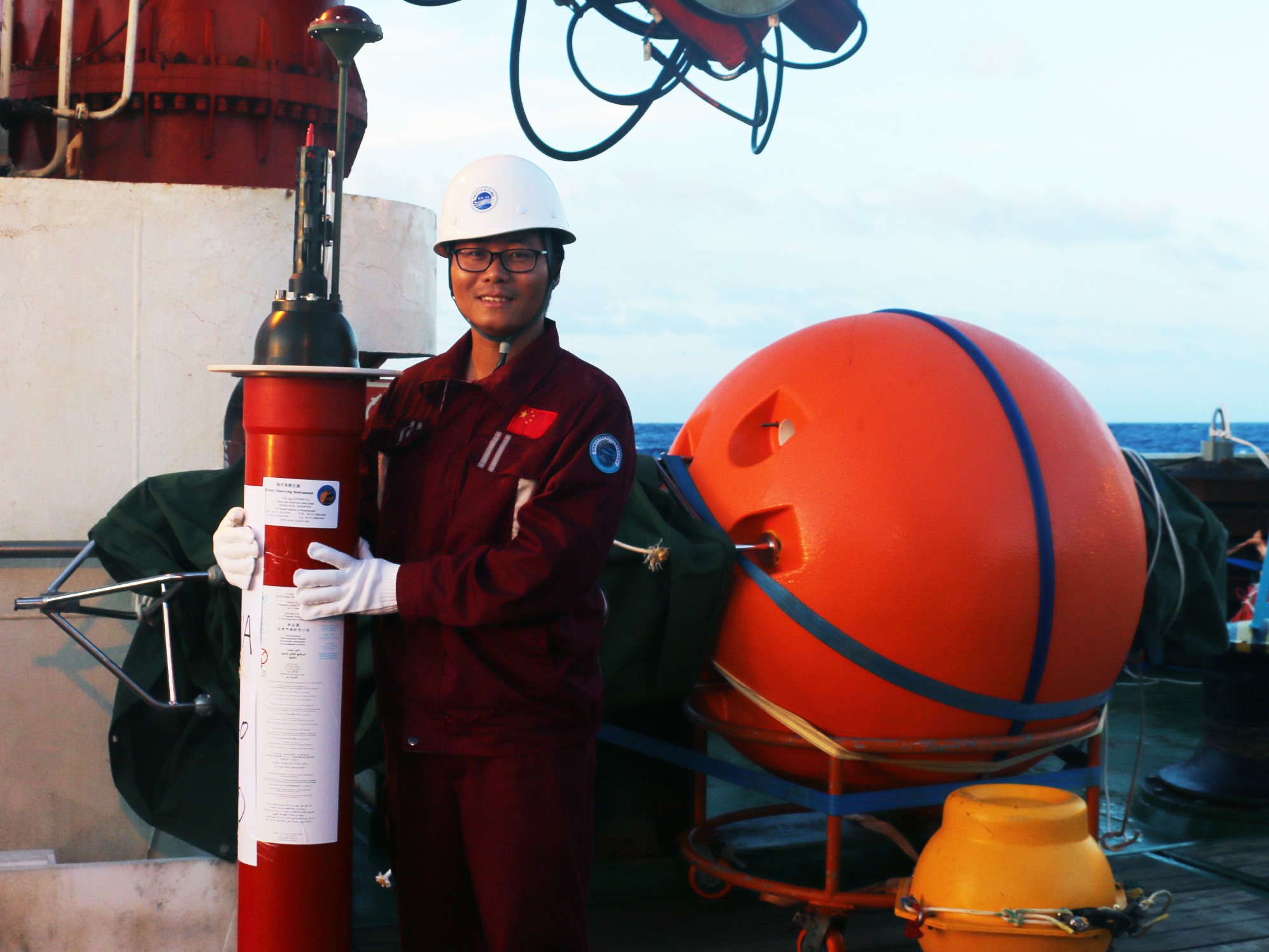(Text by HU Shijian, sjhu@qdio.ac.cn)

Shijian was getting ready to deploy an Argo float in the western Pacific Ocean. Behind him is a floating ball of a mooring equipped with ADCPs. Credit: Institute of Oceanology, Chinese Academy of Sciences
The ocean is the largest reservoir of water on earth and acts as a regulator of Earth's climate. Since the Industrial Revolution, human activities have caused increased greenhouse gas emissions and unbalanced Earth's energy budget. More than 90% of the increased heat trapped by greenhouse gas emissions is absorbed by the oceans, leading to significant warming of the oceans. Ocean circulation redistributes heat and shapes the marine environment. The response of ocean circulation to global climate warming is hence essential to how the Earth's climate system changes in the future. A goal of my study is to explore and better understand the role of ocean circulation in a warming climate.
I earned my undergraduate's degree in physics at the Northeast Normal University in 2008. My passion for physical oceanography began after I graduated from college when I realized that the importance of the ocean in affecting the habitability of the planet we live on and the feasibility of using physics to study ocean and climate change. I worked on variability and influence of western Pacific warm pool, including the role of ocean currents in maintaining and changing the warm pool, when I was a graduate student, and then received my Ph.D. in physical oceanography at the University of Chinese Academy of Sciences in 2013.
Field observation is one of the most important research methods in physical oceanography and the basis for understanding the ocean. During the past decade, my colleagues and I have conducted extensive ocean observations in the tropical western Pacific, including deployments of mooring arrays and CTD profiling in the western Pacific where depth of water usually exceeds five thousands meters. Based on these in situ observations, we have conducted a series of studies on ocean circulation and environment in the western Pacific. For example, we uncovered the intraseasonal to interannual variability of the western boundary currents and underlying undercurrents using direct measurements, and found the existence of strong subsurface marine heatwaves which may exert significant influence on fishing.
Under the background of climate warming, ocean circulation is undergoing profound changes. For example, our recent study shows that the global mean ocean circulation has accelerated over the past few decades. The oceans continue to warm, and humanity faces a continuing threat from climate change. Changes in ocean circulation clearly play an important role in how the climate will evolve in the future, but our understanding of this is very superficial. My team and I will continue to observe and study changes in the ocean in order to more accurately predict future climate changes and impacts in advance.
(Editor: ZHANG Yiyi)

